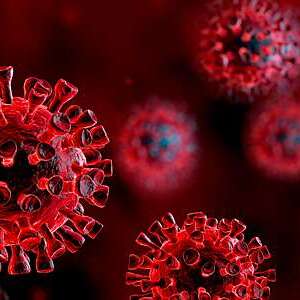Virologists told whether COVID gives a 100% risk of reducing life expectancy

More research and a larger statistical base are needed to draw conclusions that those who have had a coronavirus infection age faster. Sergey Voznesensky, Associate Professor of the Department of Infectious Diseases of the RUDN University, and virologist, Professor of Moscow State University, Doctor of Biology Alexei Agranovsky told RBC about this.
“Definitely, in order to interpret the dependence of life on a coronavirus infection, you need to have a fairly serious statistical basis for such statements. And today it is somewhat premature, ”Associate Professor of the Department of Infectious Diseases at RUDN University Sergey Voznesensky told RBC. “Too little time has passed [since the beginning of the pandemic] for us to be able to assess life expectancy and how it has been affected by the disease people have had. Probably, we can talk about some kind of forecasts, ”added Alexei Agranovsky.
Altered and fast: what is known about the new omicron strain of coronavirus Society
So far, all the data allows us to say that coronavirus infection refers to “acute respiratory diseases, which in the vast majority of cases pass without a trace,” Voznesensky said. Here we must look at the fact that coronavirus is often superimposed on any pathology that a person used to have. “For example, some pathologies of the vascular system in patients with coronavirus infection often occur in people with existing chronic diseases. Whether it's venous insufficiency, whether it's a tendency to self-education, whether it's hypertension. I would not build a direct causal relationship without some concomitant pathology, ”said the virologist.
He recalled that some of those who had been ill have a “post-covid syndrome” and such a pathology is in the international classification of diseases. “But to say that a past infection is a 100% fact of a decrease in life expectancy is somewhat far-fetched,” the scientist said.
Read together with it:
- The Russian Ministry of Agriculture extends veterinary regulations until 2032.According to Andrey Mukovnin, Deputy Director of the Veterinary Department, the corresponding order will be registered by the Ministry of Justice in the near future. This document covers diseases such as bradsot, trichinosis, myxomatosis, and viral hemorrhagic disease of rabbits, as well as porcine reproductive and respiratory syndrome. In 2......
- В Молдавии зафиксировали новую вспышку африканской чумы свинейРанее Национальное агентство по безопасности пищевых продуктов передавало, что в период с 5 по 12 января в Молдавии было зарегистрировано пять вспышек свиной чумы: две в Леовском районе и по одной в Унгенском, Хынчештском и Штефан-водском. "Очаг африканской чумы свиней был подтвержден в селе Пырлица Фалештского района. Населенный пункт был помещен на 3......



























































